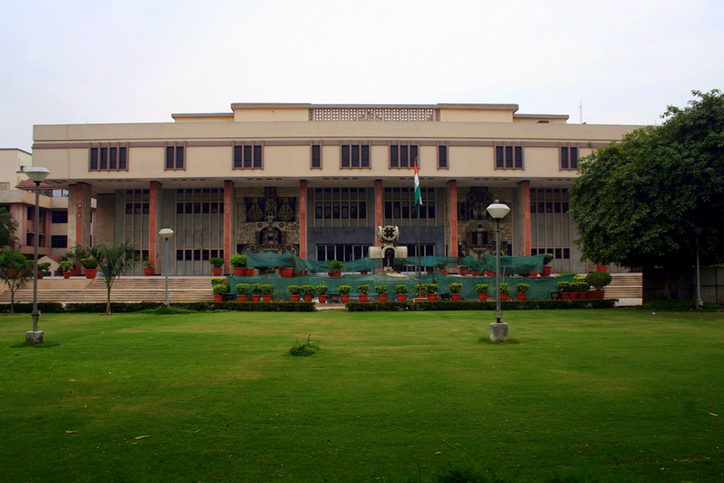In a relief to veterans, decorated officers, war-widows and armed forces personnel the, Delhi High Court on Monday directed the water authority, DJB, to frame a scheme within nine months for providing drinking water to Defence Services Enclave at Khanpur and Khirki villages
The land allotted in the 1970’s for Defence Services Enclave at Khanpur and Khirki villages here were never provided any basic facilities by local bodies.
The high court observed that the “right to access to drinking water is fundamental to life” and it cannot be deprived to the citizens merely on the ground that it is an unauthorised colony.
Presently, the colony is meeting its water requirements via four tube wells permitted to be installed there as an interim arrangement and according to the petition the electricity was provided later.
The high court asked the Secretary, Ministry of Defence to constitute a committee, which may include representatives of Urban Development Ministry and Delhi Chief Secretary, to take a decision within four months with regard to regularising the Defence Services Enclave as was directed by the court earlier in another petition related to unauthorised constructions in Sainik Farms area of south Delhi.
The order was issued by Justice Jayant Nath on the plea by 54 persons who have been residing at the enclave for the last 50 years and were denied basic amenities like water and sewage connections as it was an unauthorised colony.
The high court observed that the petitioners were all “retired defence personnel who have devoted the most productive period of their lives defending the nation’s borders and performing other dangerous and difficult tasks normally performed by defence service officers”.
It said that “right to access to drinking water is fundamental to life and there is a duty of the State under Article 21 of the Constitution to provide clean drinking water to its citizens” and noted that the Delhi Jal Board (DJB) was supplying drinking water to various other unauthorised colonies.
“It is a settled position of law that an individual has a right to access to drinking water in quantum and quality equal to his basic needs. Further, the petitioners in my opinion cannot be deprived of a right to access to drinking water merely on the ground that it is an unauthorised colony.
“The petitioners have been residing in the said area for the last 50 years and cannot continuously be deprived of this right to access to drinking and potable water. In the light of the above, I direct the Delhi Jal Board to make an appropriate scheme as per their normal procedure for supply of potable drinking water to the 54 petitioners in accordance with law. The scheme shall be framed and implemented expeditiously preferably within nine months from today,” the judge said.
With regard to regularisation of the colony, the judge said that in another matter relating to unauthorised constructions in Sainik Farms, a division bench of the high court had observed that the petitioners here were to be treated differently and cannot be termed as affluent persons.
“Thereafter, a clear direction was passed to the Central Government to take a clear decision on regularising Defence Services Enclave before the next date of hearing. Again, no progress appears to have been made despite the said directions of this court. There is another aspect which is relevant, namely, the fact that the plots and lands were allotted to the petitioners sometimes in the 1970s.
“The sale deed is of 1983. Hence, roughly 40 to 50 years have passed since the petitioners have been in occupation of the lands in question and have been using it for residential purposes despite the colony being an unauthorised colony. Keeping in view the above facts and circumstances, in my opinion, the respondents are duty-bound to take an appropriate decision based on the cogent facts regarding the status of the said area known as ‘Defence Services Enclave’,” Justice Nath said while disposing of the plea.
The petitioners, in their plea, had contended that the then Defence Minister V K Krishna Menon had formulated a scheme in 1961 for creation of a chain of housing societies for resettlement of war-widows, disabled/decorated soldiers and other servicemen in most major cities.
They further contended that ex-servicemen resettled under this very scheme in many other stations in the country have been living peacefully since the last 45 years.
“It is only in Delhi that war-widows and disabled/decorated ex-servicemen resettled under the Government of India mooted scheme have been harassed and denied essential basic amenities of water, electricity, sewer, road, etc. for the last 55 years,” they had claimed in their plea.





